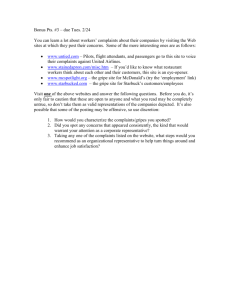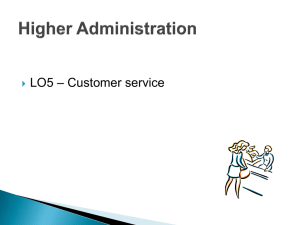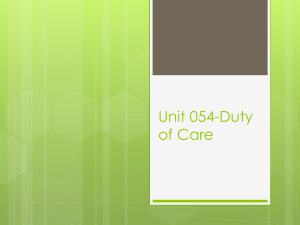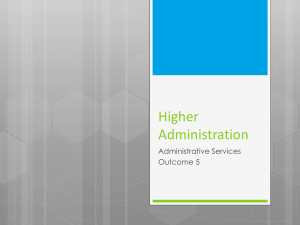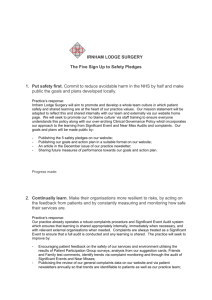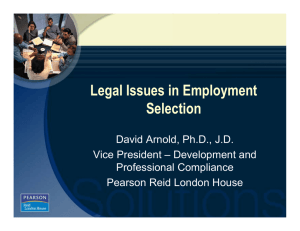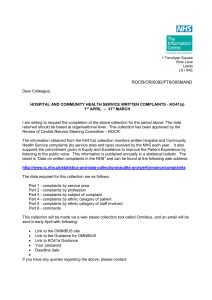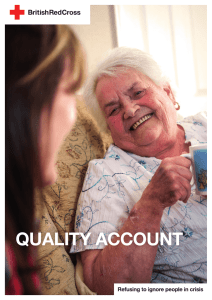Client care (M003)
advertisement
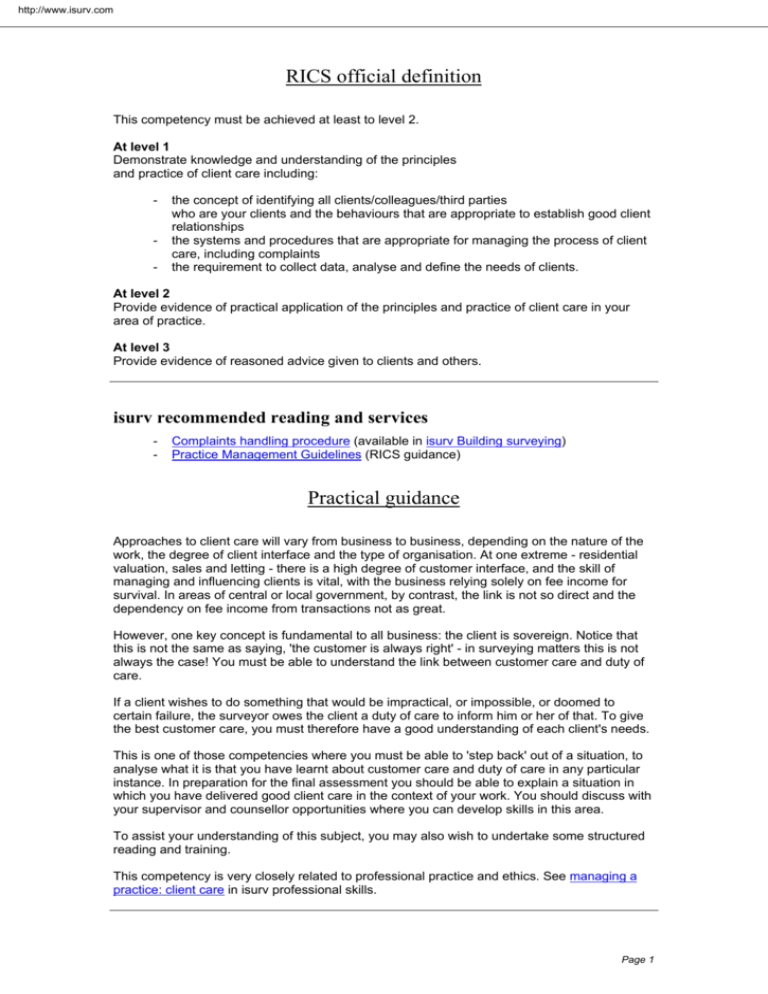
http://www.isurv.com RICS official definition This competency must be achieved at least to level 2. At level 1 Demonstrate knowledge and understanding of the principles and practice of client care including: - the concept of identifying all clients/colleagues/third parties who are your clients and the behaviours that are appropriate to establish good client relationships the systems and procedures that are appropriate for managing the process of client care, including complaints the requirement to collect data, analyse and define the needs of clients. At level 2 Provide evidence of practical application of the principles and practice of client care in your area of practice. At level 3 Provide evidence of reasoned advice given to clients and others. isurv recommended reading and services - Complaints handling procedure (available in isurv Building surveying) Practice Management Guidelines (RICS guidance) Practical guidance Approaches to client care will vary from business to business, depending on the nature of the work, the degree of client interface and the type of organisation. At one extreme - residential valuation, sales and letting - there is a high degree of customer interface, and the skill of managing and influencing clients is vital, with the business relying solely on fee income for survival. In areas of central or local government, by contrast, the link is not so direct and the dependency on fee income from transactions not as great. However, one key concept is fundamental to all business: the client is sovereign. Notice that this is not the same as saying, 'the customer is always right' - in surveying matters this is not always the case! You must be able to understand the link between customer care and duty of care. If a client wishes to do something that would be impractical, or impossible, or doomed to certain failure, the surveyor owes the client a duty of care to inform him or her of that. To give the best customer care, you must therefore have a good understanding of each client's needs. This is one of those competencies where you must be able to 'step back' out of a situation, to analyse what it is that you have learnt about customer care and duty of care in any particular instance. In preparation for the final assessment you should be able to explain a situation in which you have delivered good client care in the context of your work. You should discuss with your supervisor and counsellor opportunities where you can develop skills in this area. To assist your understanding of this subject, you may also wish to undertake some structured reading and training. This competency is very closely related to professional practice and ethics. See managing a practice: client care in isurv professional skills. Page 1 http://www.isurv.com Top tip: Think about who your clients are. This may be simple if you are in the private sector but if you are in the public or corporate sector, your client may be another department, a board or an individual within your organisation. Testing areas of knowledge Key areas of knowledge include: - who are your clients?; customer care; duty of care; links with professional ethics and practice; how to understand and respond to your client’s requirements; firms regulated by RICS; complaints handling and redress schemes; and links to data management. Consider the following questions and what should be included in answering them. What should be included in your organisation’s complaints handling procedure? Any CHP should include the following as a minimum: - Information about who the appointed person within the firm is who deals with complaints. A request that complaints are made in writing. The stages of the CHP. The timescale for considering the complaint within the firm. Give me an example of a time when you feel you have given excellent client care. Clearly answers here will vary enormously. You should try to choose an example where you can describe how you defined your client's requirements and how you then set out to meet these. The concept of client for a question like this is very broad and could be another department of your organisation, a board, a committee or anyone else for whom you provided professional advice. Page 2
